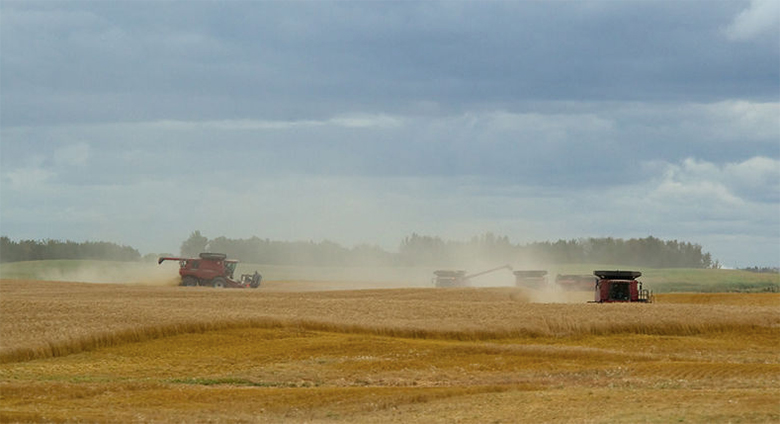
There are severe impacts on UK agriculture and the wider economy being caused by the loss or restriction of Plant Protection Products (PPPs) due to 'over-precautionary' EU regulation, according to a new report.
The NFU, CPA and AIC’s campaign for sound, science-based regulation of plant protection products (PPPs) is being taken to MEPs and Commission delegates in Brussels today.
The Healthy Harvest campaign, backed by a report by Andersons, concluded:
· The domestic production of iconic British foods such as frozen peas, apples and carrots could be drastically reduced;
· Up to 44,000 jobs in the associated workforce could be lost;
· Agriculture’s contribution to the economy could drop by 36 per cent (£1.6bn).
A report commissioned by AHDB strengthened these findings with scientific analysis of the potential impact of reduced availability of PPPs as a result of overly precautionary definitions of endocrine disruptors. The worst case scenario the report predicted was a farmgate value loss of £3.3billion.
The organisations’ key asks for MEPs and EU regulators are for regulation to be risk-based, considering dose and exposure, and for the impact of loss of active ingredients in PPPs to be considered, so it’s aligned with the regulation of other chemistry.
NFU vice president, Guy Smith said: “We have been warning that in the lifetime of the current European Parliament, we would face significant threats to PPPs. With this in mind, informing MEPs and Commission staff who write and influence the regulation imposed on UK and EU farmers is a vital part of the Healthy Harvest campaign.
“British farmers are increasingly lacking plant and crop protection tools, causing problems that their competitors outside of Europe don’t have. Many retailers, as well as the most of the food industry, look to cheaper imports globally from farms that use PPPs not allowed in the UK and the EU.
“If regulators continue to stifle British food production through bad regulation, they are exporting our agricultural production capabilities to those parts of the world that have a less hostile attitude to food production.”
Nick von Westenholz, CPA chief executive officer, said: “The Andersons report shows how vital it is that European policy-makers properly assess both the risk and impact of decisions affecting food production, and what the fall-out will be if they get it wrong. Good regulation is vital if we are to protect consumers and the environment while also fostering innovation in agriculture. However, bad regulation achieves neither.
“We need a more proportional approach to risk in the EU, which includes the adoption of an innovation principle so that whenever precautionary legislation is under consideration, the impact on innovation is taken into account.”
David Caffall, AIC Chief Executive said: “The reports by Andersons and AHDB aren’t alone in their findings; the government’s Health and Safety Executive and the Water Research Council on regulatory impacts all point to a reduced availability of active ingredients having serious knock-on effects for agriculture and the whole food chain.
“There appears to be little doubt that the current precautionary stance on the availability of PPPs threatens the future of technology and the advisory network to support optimum agricultural production across the EU.”
